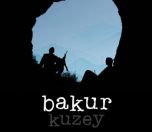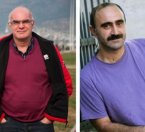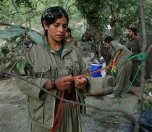Click to read the article in Turkish
PEN American Center (PEN) has published a letter signed by a number of filmmakers, journalists and 28 international rights organizations, making a call for the release of the directors of Bakur documentary, Ertuğrul Mavioğlu and Çayan Demirel. The letter has been addressed to the Minister of Culture and Tourism Numan Kurtulmuş and the Minister Of Justice Abdülhamit Gül.
Mavioğlu and Demirel will stand trial at the Batman Court of First Instance tomorrow (May 29). The filmmakers face five years of prison sentence on charge of "propagandizing for a terrorist organization" due to the Bakur documentary that they jointly directed.
The letter published on the official website of the PEN America is as follows:
We, the undersigned cultural and human rights organizations, call upon the Public Prosecutor's Office of Batman to drop charges immediately against filmmakers Çayan Demirel and Ertuğrul Mavioğlu and to cease efforts to criminalize the film and its makers. We also urge the Ministry of Culture and Tourism of the Republic of Turkey and the General Directorate of Cinema to support both filmmakers and to advocate for charges against them to be dropped. The upcoming court proceeding against Demirel and Mavioğlu comes at a time when artists, academics, and journalists in Turkey are being criminalized in alarming numbers for the peaceful exercise of their free speech. On May 29, Demirel and Mavioğlu will appear in front of the Batman 2nd Assize Court. Both filmmakers stand charged with disseminating propaganda in favor of a terrorist organization under Article 7/2 of Law no. 3713 on Counter-Terrorism for their documentary film Bakur, and face up to five years of imprisonment if found guilty. The feature length documentary, shot in the summer and fall months of 2013, shows the daily life of PKK members in three different camps in southeast Turkey. The timing of both the filming and production of Bakur coincided with the peace talks between the Turkish government and the PKK to end a 40-year conflict during which a ceasefire was in place. As the peace talks unraveled, Bakur was scheduled to premiere at the 34th Istanbul Film Festival on May 5, 2015, but on that day, the İstanbul Foundation for Culture and Arts (İKSV) canceled the screening. The film was subsequently shown in numerous other international and national festivals, but two years later, on December 20, 2017, the filmmakers were accused of disseminating terrorist propaganda and giving "legitimacy to the terrorist organization PKK/KCK's methods of using force, violence, or threats." If found guilty, this would be the first time that filmmakers in Turkey would face a prison sentence due to a film, a dangerous precedent for the status of freedom of expression. However, as an attack on peaceful exercise of the right to free expression in Turkey, Bakur is not an isolated case. Numerous journalists, scholars, writers, and artists are currently facing similar criminal prosecutions. The right to freedom of expression, whether in a film, newspaper, painting, or peaceful protest is an essential part of a functioning democratic society and the development of vibrant cultures. Artistic expression can play a productive role in addressing conflicts, reconciling former enemies, and can contribute to developing trust between individuals and groups that have experienced protracted conflicts. Turkey has affirmed this and made international commitments to uphold these freedoms, having ratified both the International Covenant on Civil and Political Rights (ICCPR) and the European Convention on Human Rights (ECHR). The right to freedom of expression is also protected in the Turkish Constitution (Article 26), which states that, "Everyone has the right to express and disseminate his/her thoughts and opinions by speech, in writing or in pictures or through other media, individually or collectively." Based on these commitments, Turkey can only exclude controversial works from the protections granted to free speech in exceptional and strictly defined circumstances where national security is under threat because the work would constitute "an incitement to discrimination, hostility or violence" as expressed in Article 20 of the ICCPR. Further, based on Principle 6 of the Johannesburg Principles, the expression may only be punished as a threat to national security if a government can demonstrate that it is intended or likely to incite violence. Bakur does not incite discrimination, hostility, or violence, but rather documents an attempt to reach a peace agreement after a decades-long conflict between the PKK and the Turkish government. Its purpose, as stated in the film's own trailer, is "to invite its viewers to reflect on a war that has been continuing for decades and give an insightful look on its main subject, the PKK." Such creative work is clearly and unequivocally protected in accordance with Turkey's domestic and international commitments. Turkey must uphold its domestic and international commitments to protect freedom of expression and ensure that artists are free to create without fear. |
Click to read the original version of the letter and the signatories.
What happened?
The 92-minute documentary entitled, "Bir Gerilla Belgeseli: BAKUR" (A Guerilla Documentary: BAKUR (North)), which was directed by the journalist Ertuğrul Mavioğlu and director Çayan Demirel and produced by Ayşe Çetinbaş, starts with the retreat call by the PKK's (Kurdistan Workers' Party) imprisoned Leader Abdullah Öcalan during the Newroz celebrations in Turkey's southeastern province of Diyarbakır on March 21, 2013.
The documentary was planned to be screened under the category of non-competitive films at İstanbul Film Festival. However, the İstanbul Foundation for Culture and Arts (İKSV) cancelled the screening of the documentary. As a justification for the cancellation, the foundation referred to the letter of warning sent by the Ministry of Culture and Tourism on April 11 regarding the "registration document" of the documentary.
On the day, when the documentary would be screened but prevented by the censorship of the İKSV, the viewers gathered in front of the Atlas Cinema in İstanbul and held a forum instead of the documentary screening.
After the forum, the filmmakers made a joint statement for the press and the crews of the films, "Nefesim Kesilene Kadar" (Until I Lose My Breath) and "Homo Politicus" implemented the boycott decision.
The lawsuit was filed two years later
Two years after the documentary was screened, a lawsuit was filed against the two directors of the documentary Ertuğrul Mavioğlu and Çayan Demirel as well as Dicle Anter, who was responsible for the screening of the documentary in the province of Batman, on charge of "propagandizing for a terrorist organization".
In the indictment issued by the Prosecutor Ömer İlhan, it has been demanded that journalist and filmmaker Mavioğlu and director Demirel and Anter be tried as per the Anti-Terror Law Article No. 7/2. (EKN/SD)









